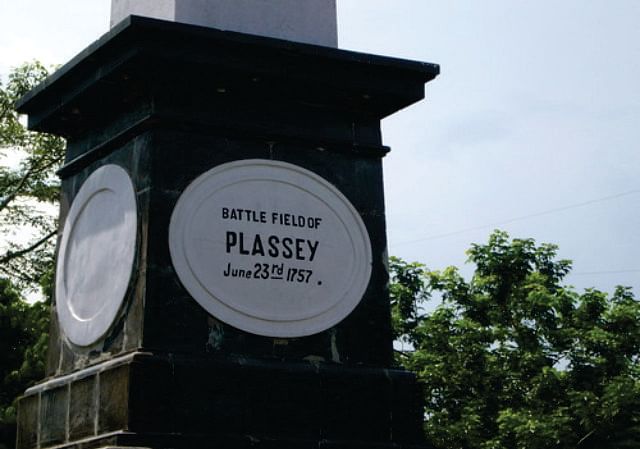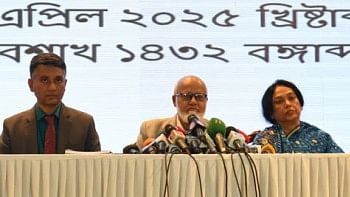Placing Plassey in the present
In2007, Nick Robins wrote a book named The Corporation That Changed the World. Amongst other things he looked into the plundering of Bengal that started after the Battle of Plassey in 1757, when the leading aristocrats and merchants at the Bengal court conspired with foreign mercenaries and defeated Nawab Sirajuddoullah. They thought they would eventually take control, but the force of events proved them disastrously wrong. The British singled out those who supported them at Plassey and systematically destroyed them. The author concludes that Bengal was certainly rich, but "its governing and merchant elite had little depth."
The readers can guess that the name of the corporation was East India Company. Right after the battle, it established its control over the export trade in Bengal. Within a decade Bengal lost two-thirds of its revenues to this commercial plunder. Alexander Dow confirmed it in History of Hindostan written in 1773 that before Plassey the balance of trade was against all nations in favour of Bengal.
This background is important because so much is common between now and then. Bangladesh has done very well in social indicators. It's amongst 18 countries in the world that have seen rapid progress in human development. Bangladesh is amongst the next eleven countries that Goldman Sachs and economist Jim O'Neill identified for having high potential to become, along with the BRICS, one of the world's largest economies in the 21st century.
If the future looks bright, the past was brilliant. Until the Company took it over, Bengal was the richest province within the Mughal Empire. Aurangzeb praised it as the "Paradise of Nations." The undivided India accounted for almost a quarter of global manufacturing output in 1750, compared with just 1.9% for Britain. Indian cotton clothes out-competed the rest of the world for a very long time. Roman historian Pliny lamented in the first century AD that the extensive import of cotton fabrics from India was draining Rome of gold.
By the end of the 18th century, 85-90% of Bengal's external trade was in the Company's hands. Before that, Bengal's weavers had higher earnings and a better standard of living than their British counterparts. They were financially more solvent, which changed after Plassey when the weavers were forced into near slavery.
Alexander Dow made an interesting observation in 1772. According to him, the beginning of India's decline dated from the day Bengal fell under foreign domination. Almost two centuries later Indian leader Jawaharlal Nehru assessed it from a different angle. His conclusion was that those parts of India, which had been longest under the British rule, also remained the poorest. He particularly mentioned Bengal, Bihar and Orissa.
If Bengal was flourishing then, why shouldn't it flourish now? But has its governing and merchant elite been able to acquire depth this time? Are they able to take their own decisions without running to foreign friends? Have they been able to align individual ambitions to collective interests of this nation? Are they rational enough to understand national hopes and aspirations?
It's not the fault of our foreign friends so much as it's that of our own that they counsel us from time to time. We hear the Indians are determined to bring back a certain party to power. We are told ISI of Pakistan has got its finger in our pie. The rumours of a second coming (1/11 type) are in the air.
In other words, 266 years later the specter of Plassey is still haunting us. We still seem keen on seeking external help for internal matters. We still look to foreign powers to set things straight for us. We don't talk to each other. We don't sit with each other. We are so full of mutual loathing that the question of looking each other in the face doesn't even arise.
What these tell us is that as a nation we are yet to come of age. Our seasoned politicians, reasoned intellectuals, emblazoned bureaucrats and impassioned merchants can't see beyond the end of their nose. Mir Jafar, Jagath Seth, Omichand, Rai Durlabh and Yar Lutuf Khan are still shuffling amongst us.
There is a strong speculation that history is going to repeat itself. The repetition will go on repeating itself until we have learned from our mistakes. We have learned to earn money, launder that money to foreign destinations and buy second homes abroad. I am talking about the same class of people Nick Robinson mentioned in his book. They now believe they can serve this country not just in collusion with their foreign contacts but also from their foreign homes. Don't they know being sovereign with foreign blessings is an oxymoron? God! They are way out of their depth.
The writer is Editor, First News, and an opinion writer for The Daily Star.
E-mail: [email protected]


 For all latest news, follow The Daily Star's Google News channel.
For all latest news, follow The Daily Star's Google News channel. 



Comments